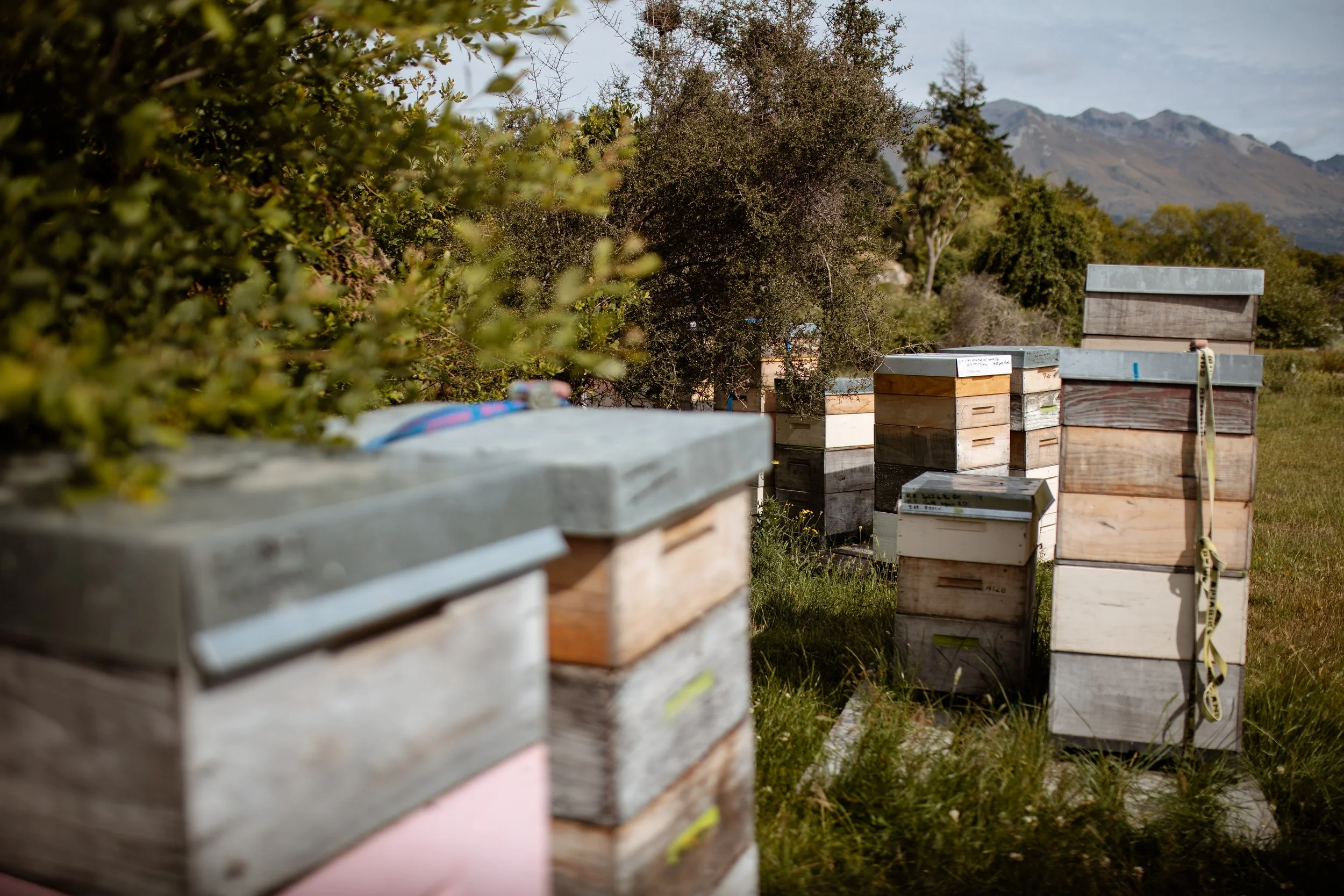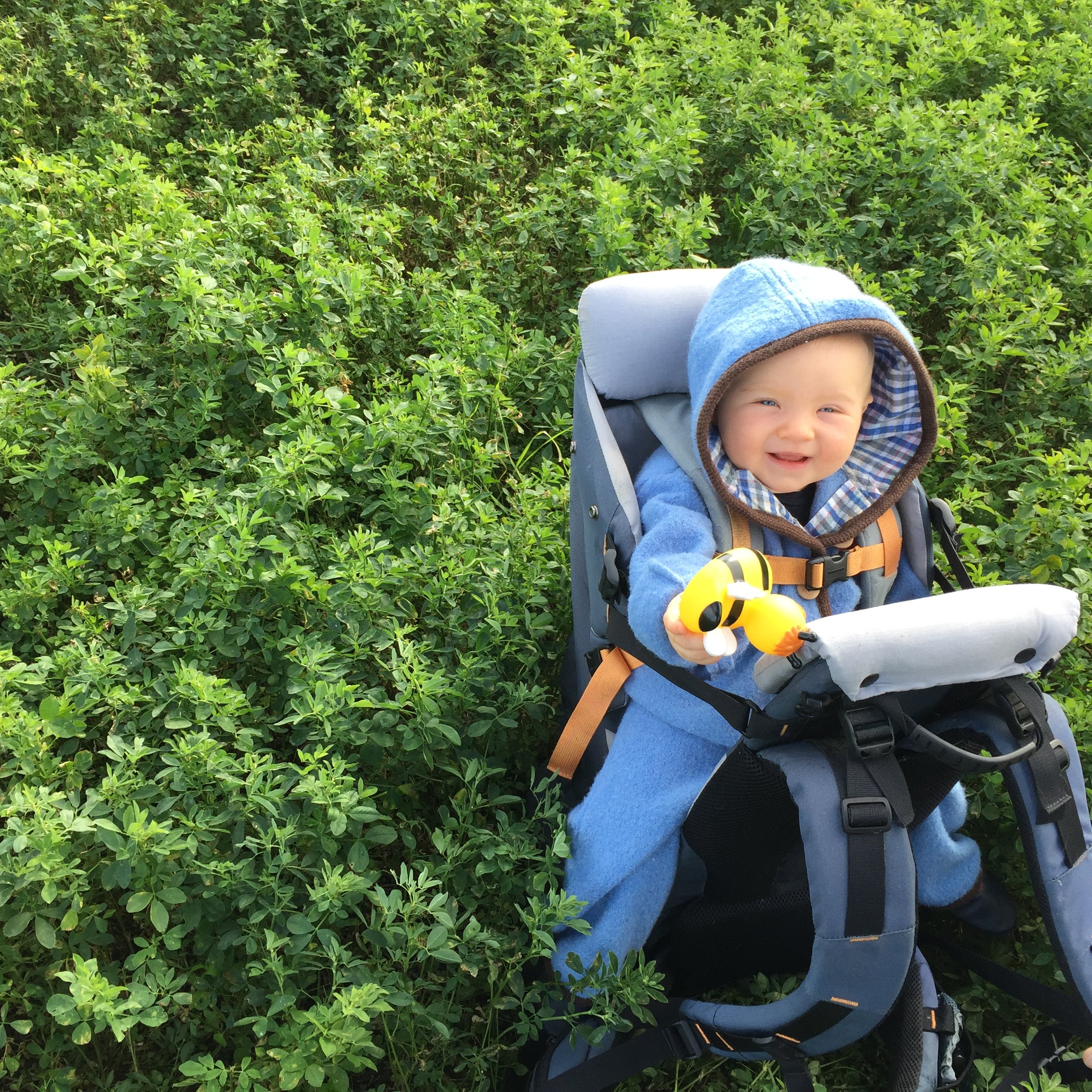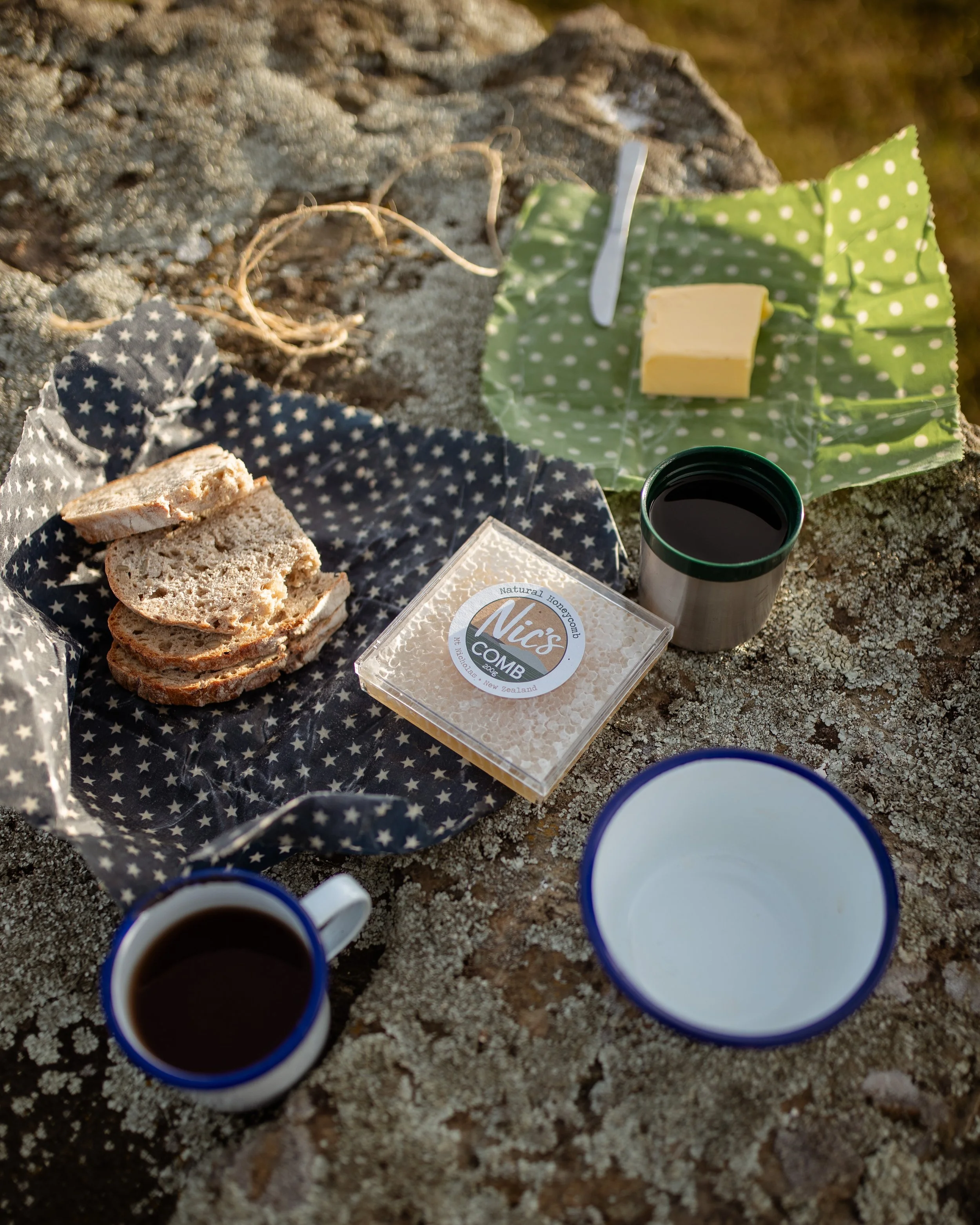Mead - A Timeless Brew with a Modern Twist
Explore the history and gluten-free benefits of mead! I’ll share my experience with homemade mead using Nic’s Honey and elderflower syrup, plus a shoutout to the refreshing Sangria mead from Altitude Brewing!
Check out the full blog! #Mead #Nic'sHoney #CraftBeverages
Mead, often called "honey wine," is one of the oldest known alcoholic beverages. Made from fermented honey, this ancient drink dates back thousands of years, with roots in cultures from ancient Egypt to Viking Scandinavia. It has found its way into modern times, bringing with it both tradition and creativity, especially when you experiment with flavours by adding ingredients such as fruits, herbs, and spices, or by sipping on a refreshing Sangria mead crafted by Altitude Brewing in Queenstown.
A Brief History of Mead
Mead is believed to have originated independently in various parts of the world, and its simplicity—honey, water, and yeast—is likely what made it so widespread. Historical records and archaeological evidence show mead was enjoyed in places as diverse as China, Africa, and Europe, often in ceremonial or religious contexts. Ancient Greeks, Norsemen, and Celts all celebrated this drink, weaving it into their myths and legends.
Gluten-Free and Full of Benefits
One of the major appeals of mead in modern times is that it’s naturally gluten-free, making it a perfect option for people with gluten intolerances or celiac disease. Since honey is the primary ingredient, it doesn’t require any grains—like wheat, barley, or rye—that are used in beer brewing.
Honey itself is a powerhouse, rich in antioxidants and boasting antimicrobial properties. When transformed into mead, it retains many of these benefits, albeit in moderation, since it is an alcoholic beverage. Depending on how the mead is crafted, it can vary from sweet to dry, and still or sparkling, offering something for everyone.
A Homemade Mead Adventure: Crafting with Nic's Honey
At home, we crafted a delightful batch of mead using Nic’s Honey and added our homemade elderflower syrup for flavour and a touch of fizz. The combination was refreshing and aromatic, with the floral notes from the elderflower perfectly complementing the natural sweetness of the honey. It was a light, bubbly drink that we enjoyed together, showing just how creative you can get with mead-making, even in a simple home brewing setup.
Homemade Mead
For the Lazy Days: Altitude Brewing’s Sangria Mead
If making mead at home isn’t your thing, I highly recommend heading to Queenstown and visiting Altitude Brewing. They’ve taken the traditional mead and transformed it into a vibrant Sangria, made with Nic’s Honey. It's a refreshing take on mead, perfect for enjoying in the company of friends on a sunny day.
Whether you're a home brew enthusiast or prefer to leave it to the experts, mead is a versatile and historical drink that deserves a spot on your tasting list. Give it a try and experience the rich legacy of honey in a glass.
Prost!
Regina x
Why Bees Are Vital to Mt. Nicholas High Country Station and Beyond
Why Bees Are Vital To Mt. Nicholas High Country Station and Beyond
Nestled in the heart of New Zealand’s breathtaking high country, Mt. Nicholas Station is home not only to sheep and cattle but also to thousands of busy, buzzing bees. While the pristine beauty of Lake Whakatipu and the rolling high-country hills are what most visitors see, behind the scenes, bees play an essential role in the health of our land, our crops, and even our business.
At Nic’s Honey, we celebrate these incredible pollinators for their tireless work, not just in making our delicious honey, but in supporting everything that grows on Mt. Nicholas Station.
Mt. Nicholas Station set against the backdrop of Lake Wakatipu
Pollination for Native Plants
The high country is rich with unique native plants, many of which rely on bees for pollination. From delicate alpine wildflowers to resilient tussocks, bees help these plants reproduce, contributing to the biodiversity that defines our region. Without pollinators like bees, these native species would struggle, impacting not just the plants themselves but the entire ecosystem that depends on them.
New Zealand Burr
Boosting Pasture Health
While sheep and cattle roam the expansive station, the plants they graze on indirectly benefit from bees. Bees pollinate the flowering plants that grow alongside the grasses, ensuring a diverse range of vegetation across the pastures. A variety of plants means richer soil, healthier livestock, and a more balanced ecosystem overall. It’s a cycle that bees keep in motion.
Lotus Major
Creating Our Unique Honey
Here at Nic's Honey, we’re passionate about producing honey that captures the essence of our high country home. Our bees forage on the untouched wildflowers and Manuka that grow across Mt. Nicholas, creating honey that is as pure and distinct as the land itself. Every jar of Nic’s Gold Manuka and Wildflower Honey tells a story of our station’s natural beauty and the hardworking bees that make it possible.
Nic's Honey
Supporting Sustainable Farming
Bees don’t just help plants grow—they also help us keep our farming sustainable. By promoting healthy pastureland and reducing the need for artificial inputs like fertilizers, bees contribute to a natural, eco-friendly approach to farming. As we work to care for our land, bees are crucial partners in ensuring its long-term health and productivity.
Lucerne paddock
Better Crops, Better Food
Whether you’ve visited our station or simply tasted our honey, you’re enjoying the benefits of bee pollination. If you’ve ever picked fruit from an orchard or harvested vegetables from a garden, bees have likely played a role. Their pollination work results in better yields and tastier, more nutritious food—not just here at Mt. Nicholas but on farms all around the world.
Mt. Nicholas Orchard - Peach Tree
The Importance of Protecting Bees
Bees are more than just honey producers—they’re vital to our entire ecosystem. As part of our commitment to sustainability and environmental stewardship at Mt. Nicholas Station, we work hard to protect our bee populations. From providing safe habitats to minimising the use of harmful chemicals, we believe in doing everything we can to keep our bees healthy.
Bringing You Closer to Nature
At Nic's Honey, we want to bring a little bit of Mt. Nicholas to you, wherever you are. Our honey is more than just a sweet treat—it’s a connection to the natural world, to the bees that make it, and to the sustainable practices that keep our land thriving.
So the next time you spread a spoonful of Nic's Honey on your toast or drizzle it over your yogurt, know that you’re enjoying the fruits of our buzzing friends’ labor—and the life they bring to our high country home.
Discover Nic’s Gold Honey
From our family farm to your table, Nic’s Honey is pure, natural, and full of the high country’s unique flavours. Try our delicious range today and taste the difference that bees—and nature—make!
From Our Hive to Yours: The Story of Nic’s Honey
Dave and I live with our three children—Heidi, Amelia, and Oskar—at our remote family home on Mt. Nicholas Station. My love for nature and a desire to give something back to our beautiful environment led me to venture into beekeeping in 2015 while I was pregnant with Heidi. Bees fascinated me, not just for their honey but for the vital role they play in nature.
This is us!
Before I brought my first hives, I enrolled in an online beekeeping course with Telford to learn everything I could about bees. By springtime, I had my first hive equipment, a newborn daughter, and a whole lot of enthusiasm! But working with real bees was quite different from what I had studied. My first season was tough and I had a lot to learn.
In the early years, beekeeping was just a hobby. One particularly memorable harvest happened when I was very pregnant with Amelia—I could barely fit into my bee suit! Dave had to help with the heavy lifting. We uncapped the comb and spun the honey in our kitchen. It was chaos! Wax and honey covered the floors and countertops, and we didn’t finish until well after midnight.
Just big enough.
As my hive numbers grew, so did my honey production. In time, I started selling honey under the brand Nic’s Honey, offering our unique honey to local shops. With each harvest, the honey we produced reflected the distinctive landscape of Mt. Nicholas Station. It was then I realised that what we had was more than just a hobby—it was something truly special.
Gift shop in Walter Peak.
Our honey comes straight from the wildflowers, native bush, and pasture plants that thrive here. Each jar reflects the distinct flavours of the land. We emphasise quality over quantity, and every batch is treated with the care and respect it deserves.
Today, Nic’s Honey is more than just a business—it’s a family tradition. Heidi, Amelia, and Oskar are growing up alongside the bees, and it’s amazing to see their curiosity and involvement deepen each year. They know the ins and outs of beekeeping, from suiting up to helping with hive inspections, and even though the bees sting sometimes, it’s all part of life of a beekeeper.
Kids help clearing the hive entry.
Recently, we’ve also expanded into selling natural, handcrafted soaps and it’s been exciting to explore this new venture. Our goal is to offer products that reflect the natural beauty and purity of our environment, with sustainability at the core of everything we do.
Nic's Natural Soap.
Looking ahead, our dream is to bring Nic’s Honey to the rest of New Zealand and beyond. We believe that our honey’s "Unique Place, Unique Taste" is something people will appreciate, and we’re excited to share this piece of Mt. Nicholas Station with more families, near and far.
What Makes Nic’s Honey Special?
Creamed, Raw & Natural: Our honey is gently creamed to create a smooth texture, while still retaining all the natural enzymes, antioxidants, and flavours that make raw honey so beneficial.
Unique Flavours: Each jar captures the distinct taste of the wildflowers, Manuka trees, and pasture plants surrounding Mt. Nicholas Station.
Family-Run: We are a small, family-owned business, and everything we produce is done with love and care.
Sustainable Beekeeping: We prioritise sustainable practices that protect both our bees and the environment.
























